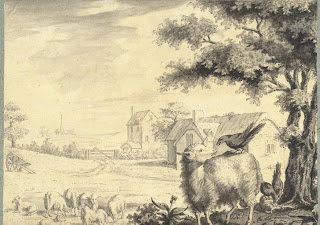
To begin with an apology for the long gap since our last posting!
The RSA will as usual be participating in Open House London- Architecture Up Close which takes place over the weekend of the 20-21st September. The House will be open to the public on Sunday 21st September from 12pm to 5pm (last admittance 4.30pm). As part of the event Dr David Allan, RSA Honorary Historical Adviser and Chair of the William Shipley Group will be giving a talk guiding visitors through the series of paintings, ‘The Progress of Human Knowledge and Culture’, which are in the RSA’s Great Room and were painted by James Barry between 1777 and 1784. Due to our involvement in this event there will be no ordinary RSA Open House in September.
There are a couple of upcoming events which we would like to draw your attention to:
An exhibition to mark the 200th anniversary of the birth of John Scott Russell (1808-1882) opened on 22nd May and will run until 20th November 2008. The Exhibition is being held at the Institution of Civil Engineers, One Great George Street, Westminster and is open Monday-Friday 9.30am-5.30pm. Scott Russell was a Member of the Society and became Secretary in 1845.
We would also like to give advance notice of the Samuel Johnson Tercentenary celebrations which will be taking place in 2009. Various events have been planned for next year by the Samuel Johnson Tercentenary Committee and the RSA will be participating in them. Samuel Johnson was one of the Society’s early Members and took a great deal of interest in the Society, attending meetings and participating in debates. Further details of RSA participation in these celebrations will follow in the coming year.
There will soon be some staff changes in the RSA Archive team. Firstly we will be welcoming a new member of the team, Amy-Jo Bransfield, who will be joining the department in the newly created position of Assistant Archivist and Records Manager. Amy is in the process of completing an MA in Archives and Records Management at University College London and joins the RSA on 1st October.
In addition the Archive and Records Management Trainee, Sophie Cawthorne, will be leaving the RSA on 19st September in order to begin an MA in Archive and Records Management at the University of Liverpool. We shall be very sorry to lose Sophie, but wish her all the best on her course and in her future career, and we look forward to welcoming her replacement Phoebe Fox-Bekerman on 22nd September. As a result of the changeover we will not be able to accommodate researchers in person between 24th September and 7th October, although we can be contacted as usual via letter, e-mail or telephone during this period. Normal service will resume from 8th October. For further details about how to arrange appointments please see the main RSA Archive page on our website.
Finally we would like to apologise for the disappearance of the archive catalogue from the RSA website which occurred as a result of the new website being launched in May. We hope that the catalogue will be reinstated shortly, but in the meantime please feel free to contact the RSA Archive with any questions relating to the catalogue.





